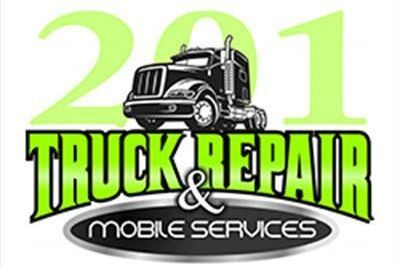Air Brake Systems
Maintenance and Repair on Truck Air Brake Systems
Let 201 Truck Repair and Mobile Services LLC provide the air brake system maintenance and replacement services you need to keep your semi truck, heavy duty truck or box truck safe and manageable.
The air brake system in a semi-truck is a critical component for safe operation. It uses compressed air to control the braking system, and proper maintenance is essential to ensure optimal functionality.
Semi Truck Air Brake System
Air Compressor:
The air compressor pressurizes air for the brake system. Regular inspection and maintenance are crucial to ensure proper function.
Air Brake Lines and Hoses:
These transport compressed air throughout the system. Inspect for leaks, cracks, or damage regularly.
Air Brake Chambers (Actuators):
Convert compressed air into mechanical force to apply the brakes. Check for proper operation, and ensure no leaks or damage.
Brake Drums and Shoes:
The components responsible for stopping the wheels. Regular inspections are necessary to ensure they are in good condition.
Air Brake Valves:
Control the release and application of air pressure. Regularly check for leaks, proper operation, and signs of wear.
Brake Pedal and Linkage:
The pedal controls the air pressure sent to the brake chambers. Ensure the pedal and linkage are in good condition.
Air Dryer:
Removes moisture from the compressed air to prevent freezing and corrosion. Regular maintenance is vital to its effectiveness.
Air Brake System Maintenance
- Regular Inspections:
Conduct routine visual inspections of all components for signs of wear, damage, or leaks.
- Brake Adjustment:
Ensure proper brake adjustment to maintain the correct clearance between the brake shoes and drums.
- Air System Leak Checks:
Regularly check for air leaks by listening for hissing sounds or using a soapy water solution to identify bubbles at connection points.
- Moisture Management:
Drain the air tanks regularly to remove moisture and contaminants. Monitor the air dryer for functionality.
- Brake Balance:
Ensure that the brakes on each axle provide balanced stopping power. Imbalances can lead to uneven wear.
- Temperature Control:
Monitor brake temperatures, especially during heavy use, to prevent overheating and potential brake fade.
Recognizing Air Brake System Failure
At 201 Truck Repair & Mobile we trouble shoot and replace brake pads and other components as needed.
Loss of Air Pressure:
A sudden loss of air pressure can indicate a leak or failure in the system. Check for audible air leaks and monitor the pressure gauge.
Reduced Braking Power:
If the truck takes longer to stop or if the brakes feel weak, it could be a sign of reduced air pressure or faulty brake components.
Warning Lights and Alarms:
Pay attention to warning lights or alarms on the dashboard indicating low air pressure or other system issues.
Spongy Brake Pedal:
A spongy or soft brake pedal may indicate air in the brake system, which requires bleeding.
Uneven Braking:
If the truck pulls to one side during braking, it may suggest imbalances in the braking system.
Unusual Noises:
Strange noises, such as squealing or grinding, may indicate issues with brake components.

